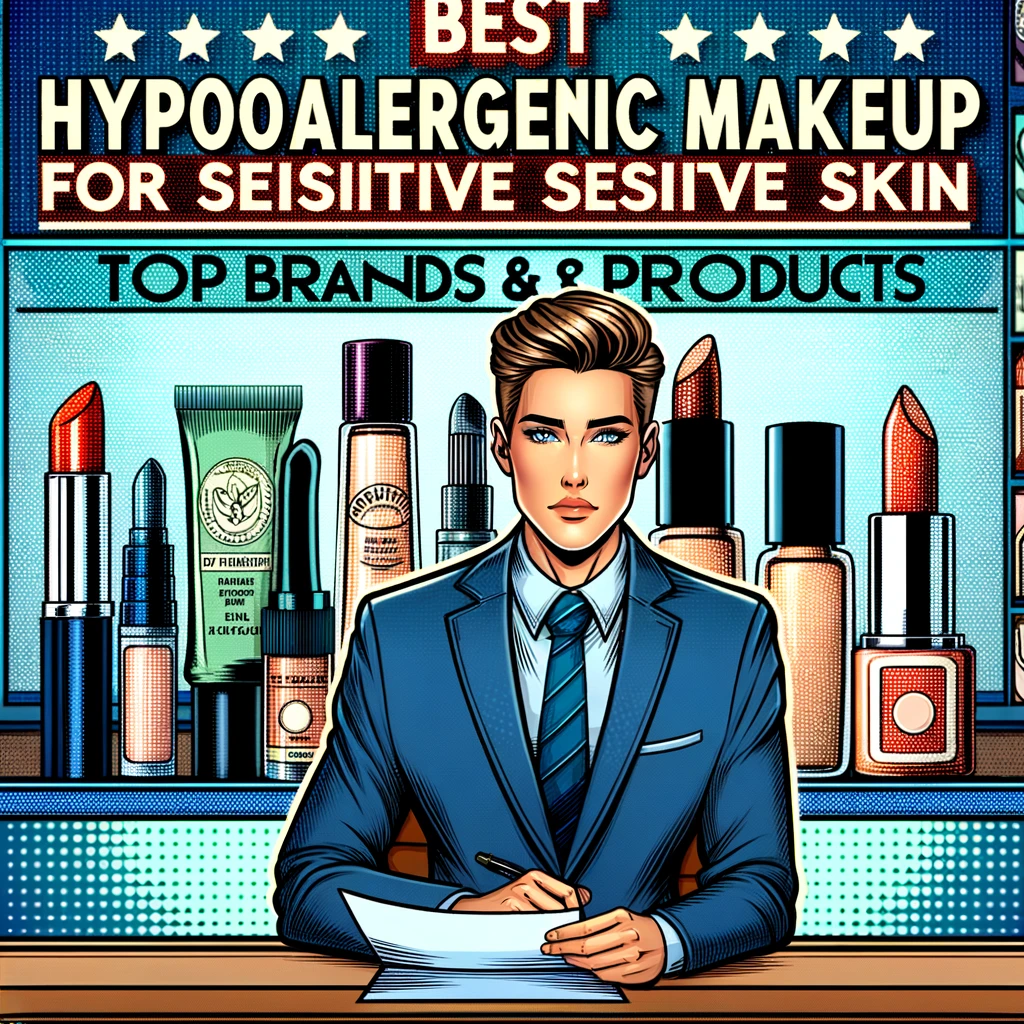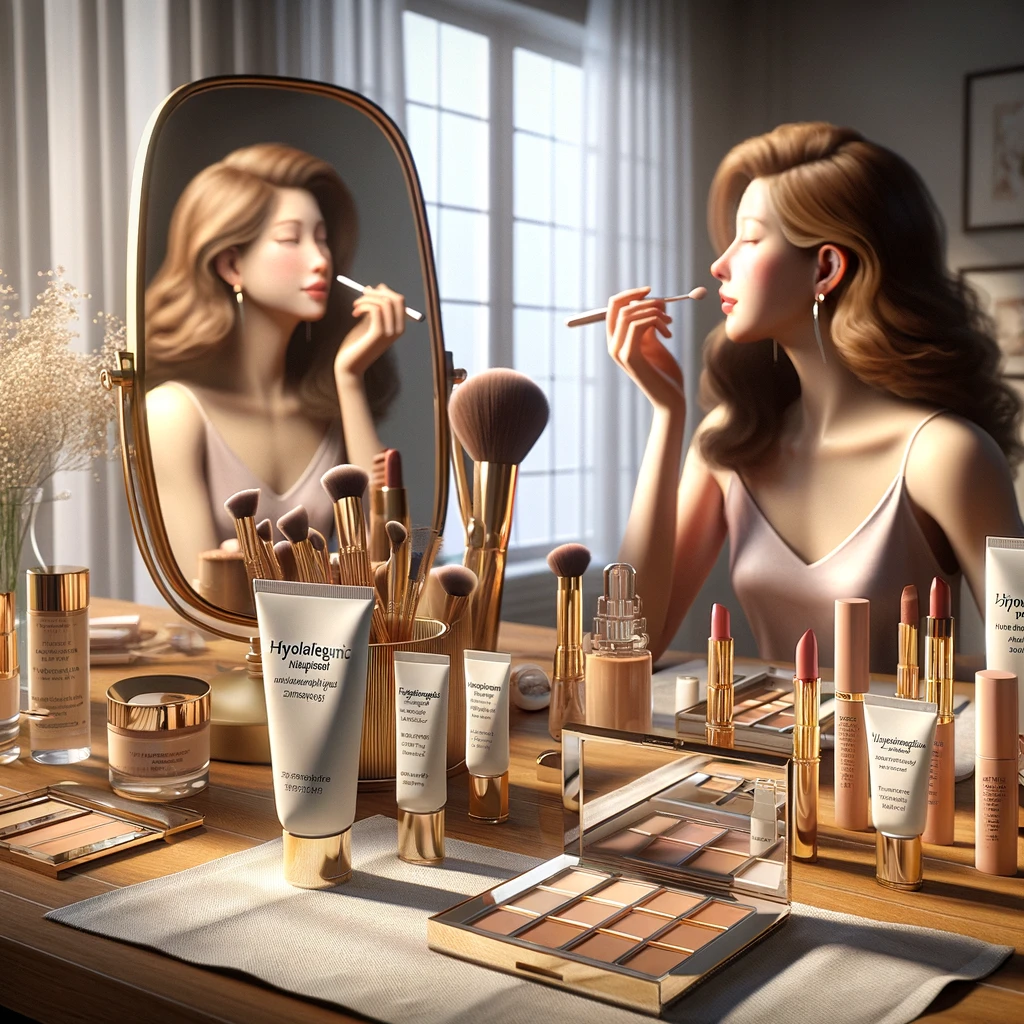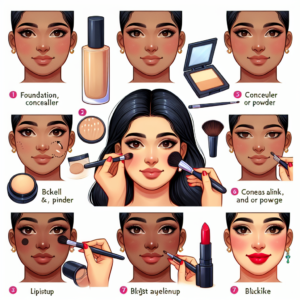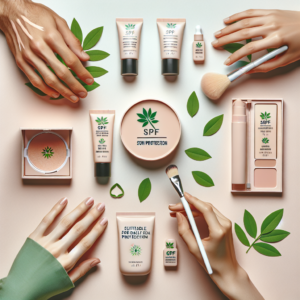Key Takeaways
- Hypoallergenic makeup is designed to minimize the risk of allergic reactions and is ideal for sensitive skin.
- Brands like Almay, Clinique, Neutrogena, BareMinerals, and Tarte offer top-notch hypoallergenic products.
- Understanding ingredients is crucial to selecting makeup that won’t irritate sensitive skin.
- Applying makeup gently and maintaining a consistent skincare routine helps prevent skin irritation.
- Even hypoallergenic makeup can cause reactions in some individuals, so patch testing is always recommended.

Top Hypoallergenic Makeup Brands and Their Star Products
For those of us with sensitive skin, finding makeup that doesn’t cause irritation or allergic reactions is like discovering a hidden gem. It’s not just about looking good – it’s about feeling good too. Hypoallergenic makeup brands understand this and have formulated their products to help you enhance your beauty confidently, without the worry of a skin flare-up.
Brand 1: Almay
Almay has been a go-to brand for hypoallergenic makeup for years. They are committed to creating clean, pure cosmetics for sensitive skin. One of their star products is the Almay Smart Shade Skintone Matching Makeup, which adjusts to the natural tone of your skin and provides a flawless, irritation-free finish.
Brand 2: Clinique
Clinique is another heavyweight in the world of hypoallergenic makeup. Their products are 100% fragrance-free and allergy-tested. The Clinique Even Better Makeup SPF15 is a fan favorite, offering moderate coverage and SPF protection while being gentle on the skin.
Brand 3: Neutrogena
Neutrogena’s makeup line is designed to be both skin-friendly and therapeutic. The Neutrogena SkinClearing Oil-Free Makeup is not just hypoallergenic but also contains salicylic acid to help combat breakouts, making it a dual-action lifesaver for sensitive, acne-prone skin.
Brand 4: BareMinerals
BareMinerals focuses on creating products with purity in mind, using minerals and avoiding harsh chemicals. Their Original Loose Powder Mineral Foundation is iconic, providing buildable coverage with a natural look and feel.
Brand 5: Tarte
Tarte cosmetics combine glamorous makeup with skin-nurturing ingredients. Their Amazonian Clay 12-Hour Blush is enriched with natural clay harvested from the banks of the Amazon River, ensuring that your cheeks have a touch of color that lasts all day without irritating your skin.
Some alternate choices
|
Product Category |
Best Products |
|---|---|
|
Mascara |
BeautyCounter Think Big All-in-One Mascara |
|
Burt’s Bees Nourishing Mascara | |
|
W3LL PEOPLE Expressionist Volumizing Mascara | |
|
Eyeliner |
Clinique Quickliner for Eyes |
|
Honest Beauty Vibeliner Pencil Eyeliner | |
|
Cream Eyeshadow |
RMS Beauty Eyelights Cream Eyeshadow |
|
Eyeshadow Palette |
Honest Beauty Eyeshadow Palette |
|
False Lashes |
Thrive Causemetics Robin Faux Lashes |
|
Setting Spray |
Tower28 Beauty SOS Daily Rescue Facial Spray |
Why Hypoallergenic Makeup is Good for Sensitive Skin
When it comes to sensitive skin, the wrong makeup can trigger redness, itching, or even a full-blown allergic reaction. This is where hypoallergenic makeup steps in. It’s specifically formulated to reduce the risk of these adverse reactions, making it a safer choice for those with delicate skin.
The Details on Skin Reactions
Reactions can range from a slight annoyance to severe discomfort. Common irritants in makeup include fragrances, preservatives, and certain oils. Hypoallergenic makeup usually avoids these ingredients, but it’s still essential to read labels and understand what works for your skin.
Decoding ‘Hypoallergenic’
The term ‘hypoallergenic’ isn’t regulated, which means brands can use it as they see fit. However, most hypoallergenic products have fewer irritants and are tested to be gentler on the skin. Always look for products that are non-comedogenic, fragrance-free, and for sensitive skin.
Smart Selection: Tips for Picking the Right Hypoallergenic Makeup
Choosing the right hypoallergenic makeup is crucial to keeping your skin happy. Remember, just because a product claims to be hypoallergenic doesn’t mean it’s free from all irritants. It’s about finding what works for you, and sometimes that means a bit of trial and error.
First, identify your skin’s enemies. If you know certain ingredients trigger your allergies or sensitivities, steer clear of them. Secondly, keep it simple. The fewer ingredients in a product, the less chance there is for irritation. And finally, pay attention to how your skin reacts after using a new product. If you notice any redness, itching, or other signs of irritation, it might be time to try something else.
Most importantly, don’t be swayed by fancy packaging or celebrity endorsements. The true test of a hypoallergenic product is in its formulation and how it interacts with your skin. It’s your skin’s comfort and health that matter the most.
Reading Ingredients Like a Pro
Understanding the list of ingredients on makeup products is key to avoiding skin reactions. Ingredients are listed in order of concentration, so those at the top make up the bulk of the product. Watch out for common irritants like alcohols, fragrances, and certain preservatives.
For example, if you’re sensitive to synthetic fragrances, look for products that are labeled “fragrance-free” or “unscented.” Keep in mind that “unscented” may mean that another ingredient has been used to mask the natural scent, so “fragrance-free” is usually the safer option.
Also, look for beneficial ingredients like aloe vera, chamomile, and green tea extract, which can have soothing effects on the skin. Remember, the more natural and straightforward the ingredient list is, the better it is for sensitive skin.
Now, let’s take a closer look at some of the ingredients to avoid and those you might want to look for in hypoallergenic makeup:
Simplicity is Key: Fewer Ingredients, Fewer Problems
When it comes to hypoallergenic makeup, less is often more. A product with a long list of ingredients increases the likelihood of containing something that could irritate your skin. So, when in doubt, opt for products with a shorter, cleaner ingredient list.
But don’t just take my word for it. Let’s take a quick look at why a minimalist approach to your makeup ingredients can make a world of difference:

Applying Your Hypoallergenic Makeup Without Irritation
Applying makeup should be a smooth and gentle process, especially for those with sensitive skin. Always start with a clean and moisturized face to create a barrier between your skin and the makeup. This helps to reduce the risk of irritation.
Gentle Techniques for Sensitive Skin
When applying makeup, use soft brushes or sponges and apply products with a light hand. Harsh rubbing can aggravate sensitive skin, leading to redness and irritation. Instead, opt for dabbing and gentle blending techniques.
And remember, it’s not just about the application. The removal process is equally important. Use a gentle makeup remover designed for sensitive skin, and follow up with your regular skincare routine to soothe and protect your skin after makeup use.
Maintaining Skin Health Amidst Beauty Routines
Maintaining the health of your skin should always be a priority, even when you’re wearing makeup daily. Ensure that you thoroughly remove makeup at the end of the day to let your skin breathe and recover. Incorporate skin-calming products into your routine, like serums or moisturizers with niacinamide or hyaluronic acid, which can help to calm inflammation and hydrate the skin.
Moreover, keep your makeup tools clean. Brushes and sponges can harbor bacteria that may lead to skin irritation or breakouts. Regular cleaning will help prevent this and keep your skin clear and healthy.
FAQs About Hypoallergenic Makeup and Sensitive Skin Care
- What Does Hypoallergenic Really Mean?
- Can I Be Allergic to Hypoallergenic Makeup?
- How Do I Test Makeup for Allergic Reactions?
- Why Is Mineral Makeup Recommended for Sensitive Skin?
- Are There Hypoallergenic Options for Eye Makeup?
- How Should I Maintain Skin Health While Using Makeup?
What Does Hypoallergenic Really Mean?
The term “hypoallergenic” is commonly used to imply that a product is less likely to cause an allergic reaction. However, it’s crucial to understand that this term is not regulated by the FDA, meaning it’s not a fail-safe guarantee against allergies. Since everyone’s skin reacts differently, a product being hypoallergenic does not mean it’s allergen-free. It’s advisable to check the ingredient list for potential allergens and perform a patch test, even with products labeled as hypoallergenic.
Can I Be Allergic to Hypoallergenic Makeup?
Yes, it’s entirely possible to be allergic to hypoallergenic makeup. This term means that the product is designed to reduce the risk of allergies, but it doesn’t eliminate the risk entirely. People with sensitive skin or known allergies should be especially cautious and always test new products carefully, regardless of their hypoallergenic claim.
How Do I Test Makeup for Allergic Reactions?
To safely test makeup for allergic reactions, conduct a patch test. Apply a small amount of the product to a less conspicuous area of your skin, like behind the ear or on the inner forearm, and wait for 24 to 48 hours. Any signs of redness, swelling, itching, or irritation indicate that the product may not be suitable for your skin. This precaution can prevent discomfort and protect your skin’s health.
Why Is Mineral Makeup Recommended for Sensitive Skin?
Mineral makeup is often recommended for those with sensitive skin due to its composition, which is typically free from preservatives, fragrances, synthetic dyes, and other common irritants. Minerals like zinc oxide and titanium dioxide are known for their skin-soothing properties and can even help calm inflamed skin. Additionally, mineral makeup is non-comedogenic, which means it won’t clog pores, making it an excellent option for individuals prone to acne.
Are There Hypoallergenic Options for Eye Makeup?
Absolutely. For eye makeup, opt for products that are hypoallergenic, fragrance-free, and ophthalmologist-tested. These products are specially formulated to be gentle on the delicate eye area, minimizing the risk of irritation. Hypoallergenic mascaras, eyeliners, and eyeshadows are particularly suited for those with sensitive eyes or for contact lens wearers.
Maintaining Skin Health Amidst Beauty Routines
In the pursuit of beauty, it’s vital not to compromise skin health. Always remove your makeup before going to bed, using a gentle, hypoallergenic makeup remover that maintains your skin’s natural oils. Follow up with a soothing moisturizer or a night serum designed for sensitive skin. This routine helps in repairing and rejuvenating your skin overnight, keeping it healthy and radiant.




